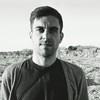On this day five years ago, Motherboard released a documentary about a ragtag group of hacktivists trying to put the internet back into the hands of the people. The title of the film could only be Free the Network. It's a state of mind that has become a catch-all tag for an essential beat in our reporting ever since. "Free the network" is about as Motherboard as it gets.But the film itself, and the era it snapshots can feel like a distant memory in 2017. Today, we find ourselves living in a world seemingly turned upside down by data, the rise of fake news, and political populism and nationalist movements sweeping the world. Things felt much different when we met Isaac Wilder and Tyrone Greenfield in the fledgling days of Occupy Wall Street in mid-September 2011.Wilder and Greenfield were two hirsute friends in their early 20s who hand rolled a constant chain of cigarettes. They told us about how they had come to Zuccotti Park in Manhattan—where activists planned a permanent occupation to protest the disparity of wealth between the "1 percent" and everyone else—to build a distributed, ad hoc mesh network from the ground up. Wilder, and Greenfield—son of Jerry Greenfield, of Ben & Jerry's fame—were at Zuccotti flying the flag of their Free Network Foundation, a nonprofit, peer-to-peer communications project aimed at liberating the global internet from corporate and governmental interference, one 9-foot-tall Wi-Fi tower at a time.Motherboard followed them for the next few months, documenting their work. It felt momentous. We wanted to capture the lives of two key players at the nerve center of arguably the first social movement of its kind in American history to play out both online, notably Twitter and livestreaming, and out in the "real" world, in meatspace. Free the Network would tell a story about digital access and connectivity, tubes, the spectrum wars, and what happens when the force of the state confronts protesters and the technologies that power modern activist movements. After all, the NYPD eventually evicted activists from Zuccotti."It's been five years since they came into the park," Wilder, who founded the FNF and has since gone on to co-found Nodal Industries, an Internet of Things security project, told me recently. "But where are our hearts, now? Are they there? Here?"Wilder and Greenfield left New York City not long after Free the Network's release. The pair landed in Kansas City, where the FNF would provide free internet access to underserved communities.If anything, what the doc opened up to Motherboard, as a tech publication, has forged a purview that defines our mission to this day. It can be hard to not despair about the current state of the world. But we must go on. What other option is there? Every day we need to ask ourselves: What do we want the future to be?That's the point on the horizon at which we aim our reporting and storytelling, be it editorial, video, and beyond: find the people who are trying to make things better and explain why anyone should care in times that can feel so bleak. As sci-fi author Kim Stanley Robinson put it, "stories of coping are more interesting than stories of the apocalypse itself."In the meantime, Wilder will continue to champion the free internet."We demand to communicate freely, and we want a global mesh that we all control together," Wilder said. "Everything dies. No post-fact world can change that. But everything that dies comes back."
Advertisement
Advertisement
